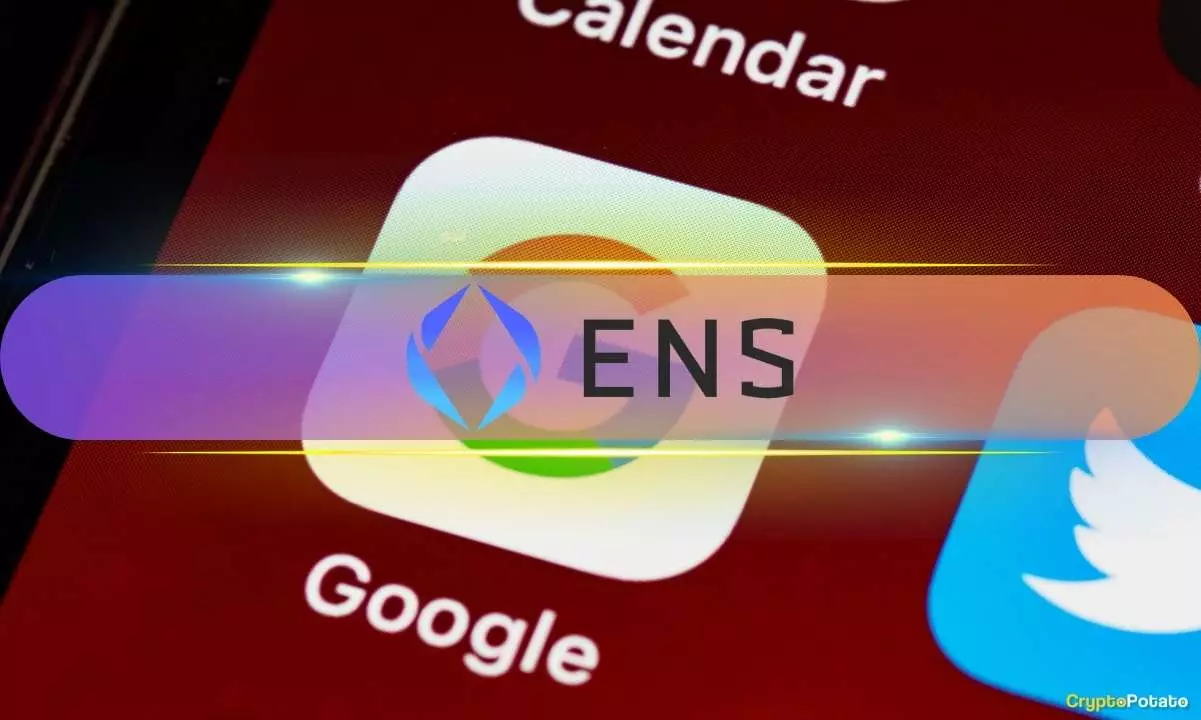In a groundbreaking move that underscores the growing intersection between traditional internet services and decentralized technologies, Google has integrated the Ethereum Name Service (ENS) into its search engine. This integration allows users to search for any `.eth` domain directly in Google Search and view the corresponding Ethereum (ETH) balance displayed in the results. This shift is not just a technical update; it represents a significant stride towards democratizing access to cryptocurrency information for millions of users worldwide.
The announcement was made via the official ENS Twitter account on October 9, revealing that this feature, previously available to a select group of users, is now accessible to everyone globally. This initiative is essential in breaking down the barriers that often deter the general public from engaging with cryptocurrencies. Nalin, a Web3 executive at Google, validated the expanded functionality, noting that Ethereum faucets for the Sepolia and Holesky test networks are also integrated into this platform. This integration permits users to input their `.eth` addresses for receiving test ETH “drips,” simplifying the experience for developers and users experimenting within the Ethereum ecosystem.
ENS acts as a translator for Ethereum’s complex alphanumeric wallet addresses, converting them into human-readable names like `yourname.eth`. This system mirrors traditional domain registration—democratizing blockchain interactions by establishing a simpler form of engagement. Consequently, users no longer need to painstakingly copy and paste lengthy wallet addresses, enhancing both usability and reducing the risk of errors. This functionality is aligned with Google’s long-standing approach to streamlining user experiences across its platforms.
Moreover, the partnership between ENS and popular domain registrar GoDaddy, announced in February, highlights an important development in making cryptocurrency more accessible. This collaboration allows users to connect their `.eth` names with standard Web2 domains at zero additional costs, effectively alleviating the high gas fees that have historically deterred users from embracing blockchain technologies. This integration is a vital step toward creating a more unified online identity that benefits both the Web3 and mainstream Web2 communities.
The Evolution of Google’s Crypto Features
Google’s journey into the crypto realm began in earnest in May 2023 with the introduction of a feature that let users search for Ethereum addresses and view their balances directly in the search results. This move was a precursor to the broader ENS integration that we see today. By March 2024, Google expanded its functionality to include ENS domains, allowing searches for notable addresses like `Vitalik.eth` to yield relevant blockchain data, including balance and transaction history from Etherscan. Such improvements eliminate the necessity for users to navigate to separate blockchain explorers, streamlining access to critical information.
In addition to this integration, Google has been proactive in marking significant events within the crypto space. For example, they celebrated the Ethereum Merge in 2022 with creative visuals that illustrated the network’s transition from proof-of-work to proof-of-stake. Such gestures help to humanize the often opaque world of cryptocurrencies, making it more relatable and engaging for everyday users.
Furthermore, advancements in Google’s crypto policies, such as the updated advertising guidelines to include products like Cryptocurrency Coin Trusts, reflect an evolving understanding of the market dynamics at play. With major financial players like BlackRock entering the scene with Bitcoin exchange-traded funds (ETFs), Google’s reassessment signals a preparation for a broader acceptance of cryptocurrency within traditional financial markets.
Google’s integration of the Ethereum Name Service into its search engine compels us to reconsider our interaction with blockchain technology. By making cryptocurrency data more accessible and user-friendly, Google is spearheading a transition that will likely foster greater public interest and adoption of cryptocurrency. As the lines continue to blur between Web2 and Web3, this move represents just the beginning of a more comprehensive engagement that could reshape the digital landscape for the future.

